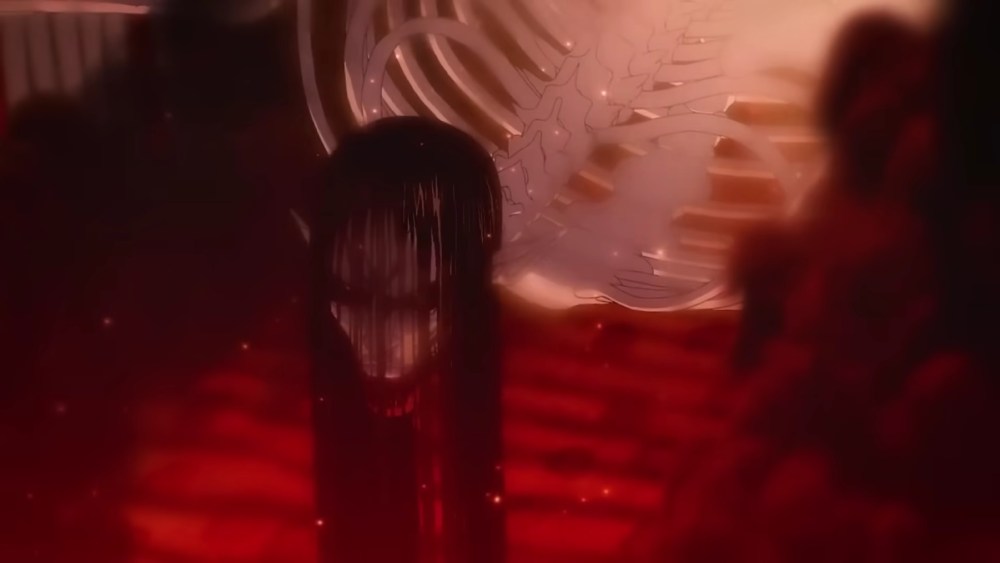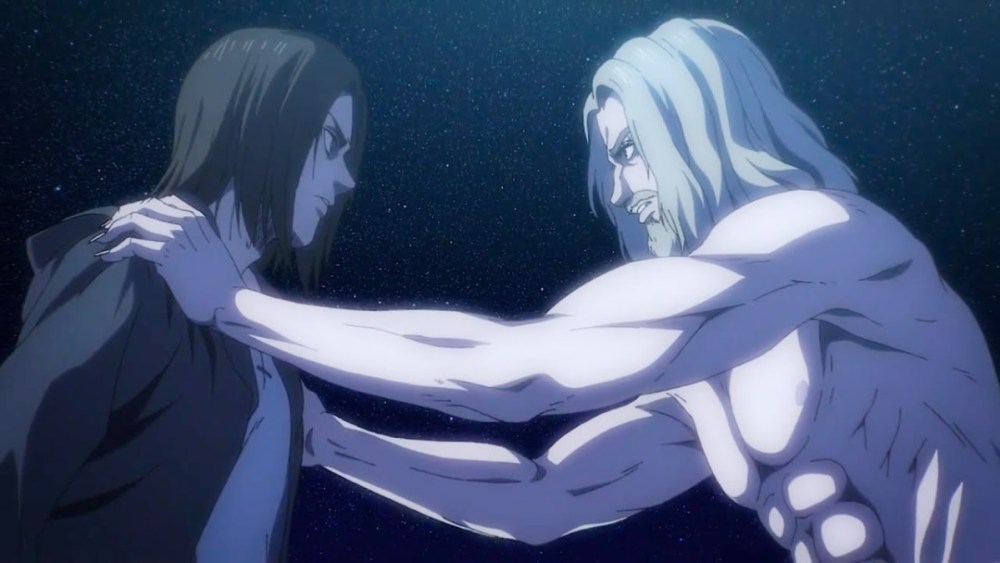[ad_1]
At this level, it’s secure to say that one of many issues Assault on Titan can be remembered for essentially the most is Eren Yeager’s radical shift in characterization.
This doesn’t refer solely to the truth that he has change into an omnipotent Titan that makes use of his measurement and affect to crush people underfoot although. As an alternative, it refers to his changing into the kind of individual that treats others as lesser than him and who forces his will upon others to strip away their freedom. He has change into the tyrant he railed so arduous in opposition to, and does so within the identify of guaranteeing his house and people he cares about stay free for the foreseeable future.
The truth that Eren finally ends up taking part in this position continues to be one of many largest factors of competition amongst followers of the sequence. In spite of everything, Eren’s flip towards extremism takes him from being the sequence’ problematic hero to appearing as one in all its most despicable villains but. Even when the story leads towards a second of redemption for him, it’d be understandably tough — if not unimaginable — for followers to make peace with the truth that he selected to change into a genocidal maniac as a way to obtain his goals.
And but, there’s an integral aspect of this topic that get’s missed far too typically. It’s key to the dialogue surrounding Eren’s rise and fall, and to raised understanding why he strikes towards taking the actions that he does.
As for what the subject is, it mainly boils all the way down to this: Eren may by no means have made a “proper” alternative in Assault on Titan, as a result of he represents the flawed morality of the present’s world.

From the get-go, Assault on Titan has by no means been a narrative that lends itself to neat and tidy resolutions for conflicts. Although it might be a Shonen sequence, it isn’t afraid of steeping the morality of its world in shades of gray.
Its characters could try to be good and pure, however most each one in all them is flawed and pushed by lower than altruistic motivations. They aren’t indomitable forces of optimism; they’re human beings who want to keep alive and care for the folks closest to them by any means crucial. They’re keen to take actions that may very well be thought-about abominable if it means defending what’s theirs, and so they’ll purchase into horrible ideologies if it helps them preserve the sense of security and safety their lives are constructed round.
Worst of all is that there isn’t some fast and simple answer to fixing this. Even in a world with large monstrosities and people who’re in a position to manifest magically-powered meat mechs, its individuals are simply as able to being ugly and merciless as actual world people are.
It’s a radical departure from the standard Shonen view of individuals being good at coronary heart and solely needing to be nudged towards doing what’s proper by a plucky hero. This isn’t one thing the sequence is refined about both. The third season shines a highlight on this very topic by way of Hange and Levi’s torture of the Army Police member Sannes, who warns them that they’re doomed to change into the villains of another person’s story in due time.
And he’s the proof of this. Like them, he as soon as acted out of loyalty and the will to maintain his house secure from battle by any means crucial. This allowed him to faux that his actions had been simply, and that no matter he and his allies did was for a larger good. These motivations led him to do horrible issues, and to go down a path which might finally make him the antagonist others noticed as a risk to their freedom and security.
His street to hell was paved with good intentions — simply as Hange, Levi, and the remainder of the Scouts’ paths are. And the one factor standing between them sharing Sannes’ destiny is a shift in public opinion.
It doesn’t take lengthy for Sannes’ predictions to be confirmed proper. The very subsequent season exhibits how the unique Scout Regiment has been painted because the villains by the loyalists who observe Eren’s ideology of prioritizing Paradis Island’s security, even at the price of the remainder of the world. Their makes an attempt at sustaining peace and searching for a greater answer trigger the remainder of the island to color them as a risk, and so they wind up imprisoned or hunted as enemies of the folks regardless of doing what most would view as proper.

Which brings us to Eren. Although he could also be positioned because the hero for many of the story, he’s not pushed by some altruistic need to avoid wasting the world. He’s pushed by hatred and anger, initially towards the creatures who killed his mom and destroyed the peaceable life he knew, and later towards the folks of Marley that villainized and dehumanized Paradis Island to the purpose of attempting to wipe them out with Titans.
Even after gaining the omniscient view of time by coming into contact with the Founding Titan and seeing the true scope of what the Titans’ existence does to the world, his motivations aren’t magically made higher. He nonetheless needs to guard what HE values, and what HE holds pricey, in the beginning.
He’s the precise kind of hero the world of Assault on Titan would create, and represents its morality to a T. It’s no shock, then, that he would declare warfare on the remainder of the world, and finally set off an apocalyptic occasion within the type of the Rumbling. Doing so was the one method for him to guard what he valued, and so he went with the choice regardless of its penalties.
It’s a horrible alternative, but in addition one which the remainder of the world’s inhabitants can be keen to make in a heartbeat. His alternative, whereas on a a lot bigger scale and extra widespread, is consistent with what Marley did through their army campaigns utilizing the Titans and what they deliberate to do to Paradis Island as a way to shield themselves.
Does this make Eren’s alternative the proper one? Not remotely. If something, it exhibits how restricted his and so many others’ scope of view for the world and its issues had been, and the way the morally gray viewpoints of most of its characters had been solely ever going to result in catastrophe. The inherent selfishness of those who inhabit Assault on Titan’s world, whereas practical, may solely end in a disastrous calamity the likes of which Eren enacts.
Which is sort of the entire level of the sequence: even when an motion is taken for a motive that one may argue is true not directly, the ends don’t justify the means. These like Eren who’re keen to sacrifice the various for the few aren’t redeemable, and can solely sow extra ache of their drive to do what they suppose is true.
[ad_2]
Source link


